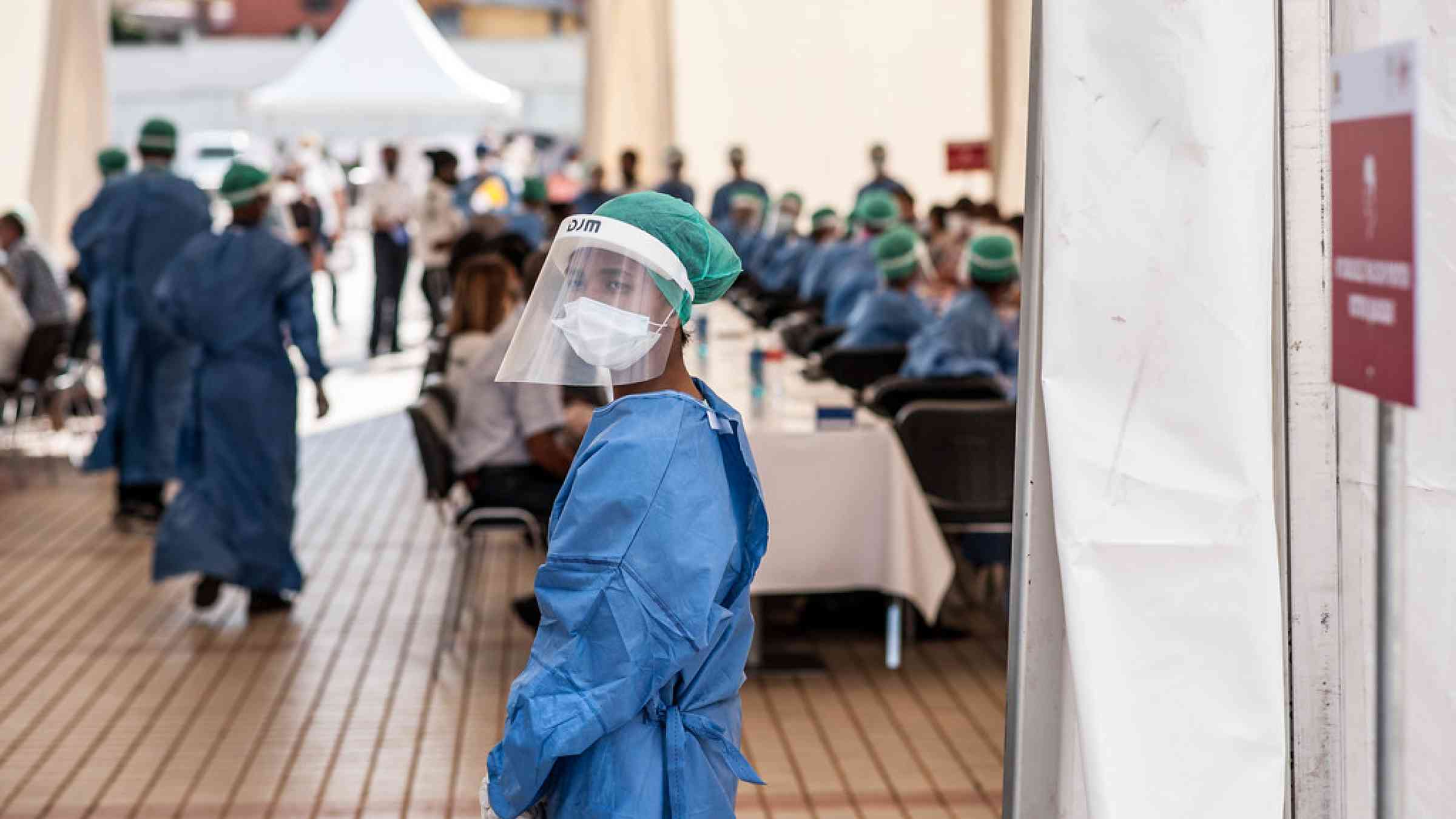WRC5 Plenary Session: Social, Infrastructural, and Economic Recovery from Disasters: An Opportunity to Reset the Development Pathway Towards a Greener and More Resilient Future
Watch this session on-demand
A greener, more resilient and inclusive approach to recovery will help repair structural damage caused by COVID-19 and accelerate climate change mitigation and adaption efforts while restoring momentum on poverty reduction and shared prosperity. This integrated approach seeks to achieve more sustainable and equitable recovery and growth by: i) promoting investments in “greener” systems of production and consumption; ii) supporting resilience building to a variety of shocks to avoid diverting scarce resources to repeated cycles of shock, restructuring, recovery, and rebuilding; and iii) ensuring that recovery is inclusive and does not leave anyone behind.
This session will outline how the world has been transformed since WRC4 and highlight opportunities for improving disaster recovery planning and management to be more sustainable, inclusive and resilient. The session will delve into the policy, strategic and operational challenges and approaches for ensuring that disaster recovery can foster and catalyze greener and resilient development.
Objectives
- Clarify how recovery opportunities and challenges have changed and become more complex since WRC4 with the advent of the pandemic;
- Identify challenges and opportunities for more sustainable, inclusive and resilient recovery.
- Tease out the various elements and modalities of making social, economic and infrastructural recovery more resilient and sustainable.
- Develop a roadmap of specific policy, strategic and operational measures for ensuring that disaster recovery can in turn promote greener and resilient development
Moderator
- Mr. Sameh Wahba, Director, Global Director, Urban, Disaster Risk Management, Resilience and Land Global Practice, World Bank
Speakers
- Mr. Kamal Kishore, Member Secretary, National Disaster Management Authority, Republic of India
- H.E. Mr. Siaosi Sovaleni, Prime Minister, Kingdom of Tonga
- Mr. Anil Pokhrel, CEO, National Disaster Risk Reduction and Management Authority (NDRRMA), Federal Democratic Republic of Nepal
Panelists
- Ms. Charlotte Norman, Director, Climate Change and Disaster Risk Reduction Department, NDMA, Republic of Ghana
- Mr. Luis Paulo Mandlate, Executive Director, Post Cyclone Reconstruction Cabinet (GREPOC), Republic of Mozambique
- Mr. Jim Hall, Professor, Climate and Environmental Risks, Oxford University
- Ms. Elizabeth Riley, Executive Director, Caribbean Disaster and Emergency Management Agency (CDEMA)
Learn more
Where do we stand
Since WRC4 in 2019, the world has profoundly changed as have the opportunities for social, infrastructural and economic recovery. COVID-19 is the worst disaster that this generation has experienced and the impacts of the pandemic have been compounded by other natural disasters, conflicts and crises. This complex situation has set back efforts to reduce poverty, develop economies and achieve the SDGs. Countries around the world have mobilized unprecedented resources to respond to and recover from the complex and interconnected set of threats. The challenge is to ensure that this mobilization is used as effectively as possible for recovery that builds resilience to future hazards in a sustainable and inclusive manner.
Session guiding questions
- How have challenges and opportunities for recovery transformed since WRC4?
- What core approaches to recovery are still valid and which need to adapt?
- How have countries and communities begun to recover from multiple hazards during the pandemic?
- What are the emerging good practices and lessons learnt for more sustainable, inclusive and resilient recovery?
- How can social, economic and infrastructural recovery be more sustainable and resilient?
- How can recovery support more resilient and sustainable development?

Agenda
Location
BICC Ground Floor
Online access
Participation
Open to those registered for the conferenceDetails
Contact
Yuki Matsuoka matsuoka@un.org; Paul Rosenberg paulelliott.rosenberg@un.org